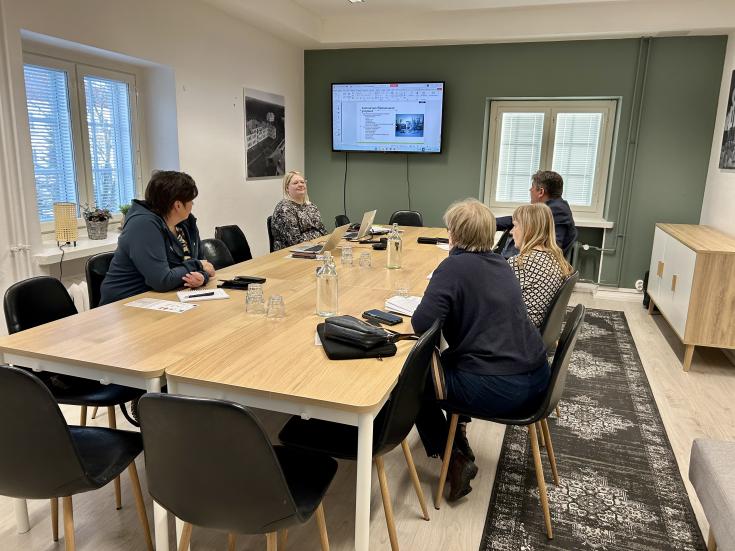Fourth stakeholder meeting held in Finland
The fourth Finland Regional Stakeholders’ Meeting for the "DETOCS – DEcarbonising the TOurism Industry Post-Covid-19 Support" project took place on 6 February 2025 at Verstas in Seinäjoki. Verstas was originally a heating plant and laundry; later, it was converted into a metal and woodworking workshop, and it is now home to a restaurant, meeting rooms, and a theatre.
The meeting began with an introduction to Hostel Björkenheim. Located next to Verstas, it occupies a former district mental hospital built in the 1920s and is a building and site of cultural and historical significance. The hostel sends customers a booking confirmation, which includes a sustainability section at the end. Customers acknowledge that they have read this confirmation, which has led to notable changes in behaviour. For example, almost all guests now use a personal hand towel to dry their hands, whereas in the past, many used toilet paper when hand towels were not provided to reduce waste. The hostel also has a goodwill shelf, which helps minimise food waste by sharing leftover edible food and groceries.
After the presentation, we moved to the meeting room, where the Seinäjoki University of Applied Sciences introduced the Eepee Riihi platform. This platform brings together comprehensive information on sustainable business development, sustainability, the circular economy, and new ideas and talent in South Ostrobothnia.
This was followed by a project update and further details on the GUEST project in Malta, which we peer-reviewed. The purpose of this presentation was to inspire tourism operators to adopt energy efficiency measures. The Maltese examples demonstrated that significant savings can be achieved at low cost, such as by adjusting water flows and cooling temperatures.
Finally, we explored responsible tourism businesses in South Ostrobothnia. There were more examples than expected, and it was encouraging to see that many tourism operators have recently taken major steps to promote sustainable practices. Several companies have completed environmental certifications, such as Ekokompassi or Green Key, and are involved in the Sustainable Travel Finland programme.

